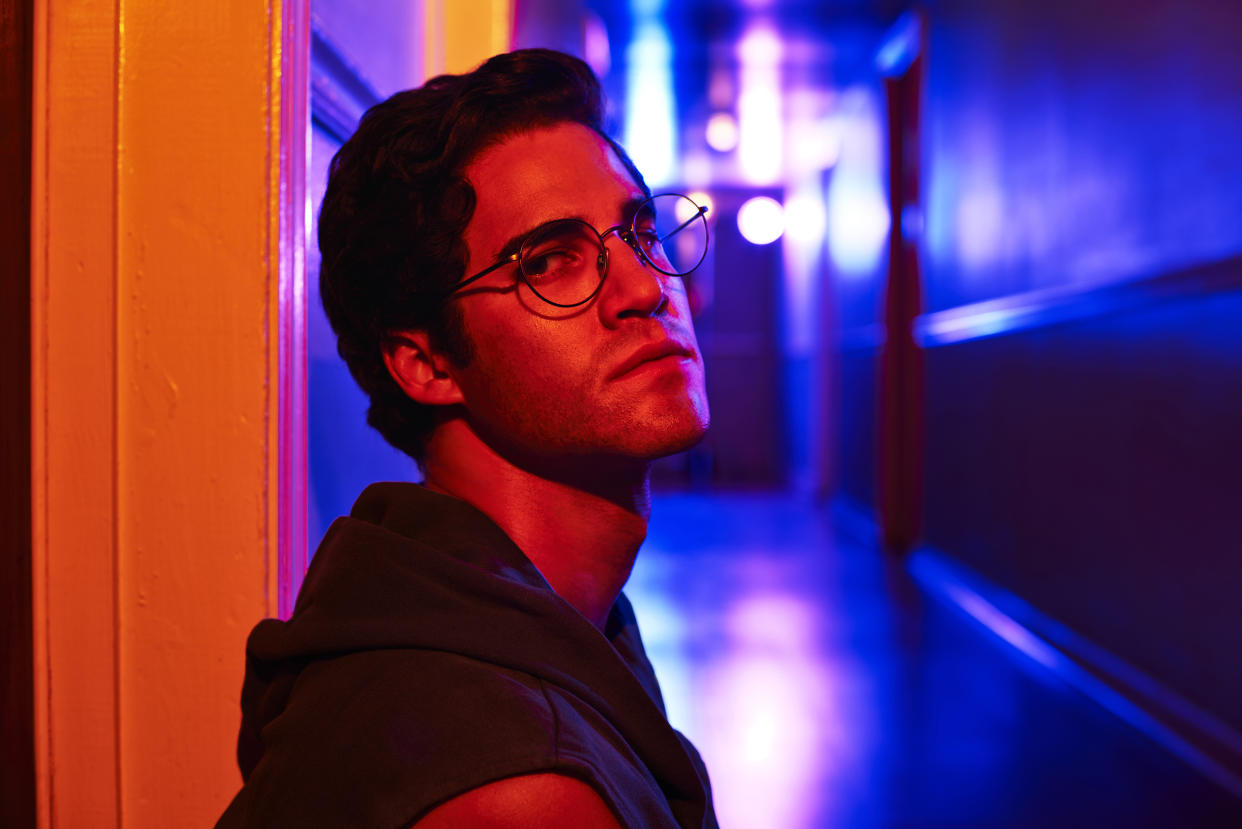The Assassination of Gianni Versace is an intimate portrait of a killer, granting him the fame he always sought

It’s not about the assassination of Gianni Versace, as many have already noted. Or, at least, it’s not just about the eponymous assassination, casting it as inciting event rather than the climax of the series. Instead, The Assassination of Gianni Versace is about the assassin, Andrew Cunanan, and the events that led him to murder the internationally renowned designer.
The series moves backwards through Cunanan’s life, tracing his story in reverse; it’s a confident piece, expertly structured in approach. Rearranging the drama to watch the story unfold chronologically wouldn’t have the same effect – it’s layered in such a way that each backwards step complements what’s gone before, honing and accentuating The Assassination of Gianni Versace as a whole. Moments described in hindsight in one episode play out in present tense in the next; expectations are subverted and tension is heightened, a sense of not just dramatic irony but deep melancholy evoked as we move through the tapestry of Cunanan’s life. Note especially a scene from the sixth episode, Descent, a conversation between Cunanan and David Madson, a former lover and eventual victim. Madson is trying to connect with him, asking about his childhood; you can see his face fall as Cunanan, seemingly, starts to lie once again, and it’s this apparent lie that drives a wedge between them. Yet as the series continues, it’s revealed that Cunanan wasn’t lying. It’s not, obviously, that this excuses or justifies anything he did – but there’s a certain sadness to it all the same, and an insight into the neuroses that drove him.
Vital, of course, is the strength of Darren Criss’ portrayal of Cunanan. In short, it’s revelatory; an exquisitely mannered performance, defined throughout by a chilling stillness. Criss evokes the quixotic obsessions of Cunanan perfectly; despite the veneer of control, the fixation on infamy and yearning to be special are never far from the surface. In turn, it’s the moments where Cunanan breaks down – the moments when isn’t chillingly still, when the mask falls away and he’s entirely unrestrained – that you see Criss’ full range. It’s difficult not be captivated by Criss; describing him as “magnetic” or “engaging” almost feels like it sells short quite how entrancing he is as a screen presence. Much of the character’s interiority is sold by Criss and the idiosyncracies of his performance – The Assassination of Gianni Versace wouldn’t be anywhere near as effective without him.

Of all the episodes of The Assassination of Gianni Versace, the most impressive are the central triptych of the fourth, fifth and sixth episodes. They tell the story of Cunanan’s lesser known victims, his friends Jeff Trail and David Madson. In that sense, they mark a departure from previous retellings of Cunanan’s story, which have always focused on the death of his most famous victim; despite being named after Versace, this is a series that’s concerned with far more than just him. Indeed, The Assassination of Gianni Versace is also about the inherent social violence of the time, contextualising Cunanan’s killing spree against a backdrop of widespread homophobia – casting that prejudice as the real ‘American crime story’. The fifth episode, Don’t Ask Don’t Tell, is a furious polemic that rails against the institutional homophobia of the American military, with a brilliant performance from Finn Wittrock; the seventh dwells on the murder of a gay man, the killer excused because “he was put into an uncomfortable position”.
A particularly powerful moment, though, comes towards the close of the fourth instalment of the series. Following the murder of Jeff Trails, Cunanan forced David to leave with him, fixated on the idea they might still have a life together; when David has the chance to escape, though, he doesn’t take it. Writer Tom Rob Smith drew attention to this scene, noting that “in every other thriller he [escaped] and run screaming for help—there is no help. The people coming to arrest Andrew Cunanan would also arrest him, because there’s no way they would believe he had nothing to do with Jeffrey Trail’s death. ‘They’ll hate me like they hate him, because they hated me before’.” It’s a brilliantly quiet, defeated performance from Cody Fern; Cunanan’s murder of David Madson is one of the series’ most tragic moments. But it’s tragic because, as the series notes, so little attention was paid to him; the casual, endemic homophobia that meant no one really cared about David Madson, or Jeff Trails, or Lee Miglin. Not until someone famous was murdered. One of the most important parts of The Assassination of Gianni Versace is the way it pulls back the focus on Versace, looking at Cunanan’s forgotten victims and finally acknowledging their place within their own story.
There’s a certain irony to it all, of course. So much of The Assassination of Gianni Versace is dedicated to Andrew Cunanan – it’s a deeply intimate portrait of a killer obsessed with being special, and there’s a sense that, if he was truly like this, this series is the apotheosis of everything he ever wanted. After him, destruction – but also a fame, or infamy, that leaves him forever intertwined with Versace, the greatest object of all his obsessions, an equal of sorts at last.
Least likely to be forgotten, indeed.
Related:
Collateral is an intimate drama, fascinated by individuals and sceptical of institutions
Trauma was a haunting meditation on destructive grief
Like this article? Hate this article? Why not follow me on twitter for more, or send me a message on facebook to tell me what you thought? You can also find more of my articles for Yahoo here, or check out my blog here.

 Yahoo Movies
Yahoo Movies 

